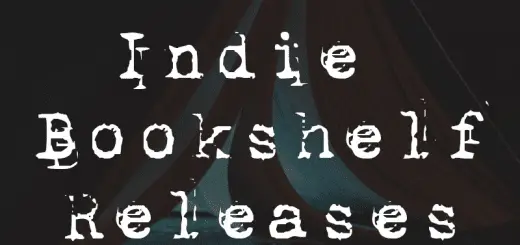4 Tips For Horror Writers From The Genre’s Masters
 4 Tips For Horror Writers From The Genre’s Masters
4 Tips For Horror Writers From The Genre’s Masters
by: Ashley Halsey
One of the most terrifying things about horror writing is the sight of a blank page. A truly scary story is not easy to craft, as any of the great writers of the genre will attest. To help you chill the spines of anyone who dares to read your work then, here are four tips for writing great horror.
- Make Your Protagonist Likeable
Remember those scenes in horror films where you’re glad the monster got the character? That’s because you didn’t care for them. If your protagonist is unlikeable, your reader won’t root for them, making it impossible for them to share in the character’s fear and danger.
Stephen King said it best:
“Try to make them care, then turn the monsters loose.”
And you can see the master taking his own advice in his novels. Take the protagonist of IT, for example, Bill Denbrough. He is a classic flawed hero. He blames himself for his brother Georgie’s disappearance; he suffers from a stammer, garnering sympathy from the reader; and his past haunts him.
By the time Bill is encountering the perils of IT, we are heavily invested in his safety. We feel his fear as he enters the sewer and share in his joy at the book’s finale.
If you want your work to scare the readers, your goal needs to be to make them care, and “every successful project needs good goals.”
- Mine Your Own Fears
Shirley Jackson said it best when she said:
“I delight in what I fear.”
Scaring ourselves is exhilarating, after all. And the chances are, what scares you scares other people too.
A good idea for monsters, for example, is to base them on things that we all instinctively fear. Spiders, snakes, and the darkness are all things that give us the heebie-jeebies, making them pre-loaded fear makers in your writing. Create a monster with similar characteristics, and half the work of scaring your reader is done for you.
Creating fictional monsters and entities that could potentially be real is also a great way to induce fear in your reader. “Vampires, for instance, are supernatural beings that we know don’t exist, but they feel “uncanny” where their existence is at least feels possible. This blend of real and unreal characteristics creates a wonderful sense of unease that is great for horror,” says Oliver Hilson, a writer at Writinity and Last Minite Writing.
- Choose Your Narrator Carefully
Your choice of point of view when writing horror will dictate how the reader relates to the events that unfold.
If you choose a first-person narrative, your reader will feel immersed in the character’s perspective and even share in their thoughts and fears. As the master of children’s horror, R.L. Stine said:
“You have to be in the eyes of the narrator…then your reader starts to identify with that character, and that’s what makes something really scary.”
First-person narratives do imply to the reader that the character has “survived” the horror ordeal, however. This could be used to play on the reader’s expectations, switching the narrative at a later point.
“Third-person narrators allow more foreshadowing and give you the ability to conceal or reveal things to the reader that a first-person view wouldn’t,” says Daniel Nelson, an editor at Draft Beyond and Researchpapersuk.
Both have their advantages and can be used to create chilling prose.
- Write First, Edit Later
The perfect is very often the enemy of the good when it comes to horror writing and writing in general, for that matter.
While you may be tempted to spend an hour trying to formulate the perfect way to convey a character’s rising dread, a simple “Vanessa was scared” may suffice – at least, for now.
The important thing is to get a sketch of the horror scene on the page and then go in and put flesh on its spooky bones later with editing.
In fact, the editing stage is probably where you’ll get to the real juicy bits of your writing. After laying some words on the page, the horror juices will still be percolating.
Ashley Halsey has worked on a number of projects across the country, writing professionally for Gumessays.com and Bbusiness Assignments. Mother to two children, Ashley loves to read, travel, and attend business training courses.
- About the Author
- Latest Posts
The Horror Tree is a resource for horror authors which was created in 2011. The main goal when starting the site was to include all of the latest horror anthologies and publishers that are taking paying submissions. A resource useful for both new and experienced publishers alike looking for an outlet for their written material!












